I wanted to verify the reality of specific destinations, based on my own personal ethical choices.
However, I realised that other people might share my opinion and think the same way I do. If you read what I write on my website, our preferences are likely aligned.
This is what prompted me to publish this in-depth analysis of destinations to be wary of. I hope you find it useful, particularly because I have highlighted the problems, but also suggested some ways to help and alternative places to visit.
Countries at risk due to instability, conflict or terrorism.
Countries where freedoms are restricted for specific categories of people.
Countries where economic instability is exceptionally high, and visiting could risk exacerbating the situation.
Update October 2025
18/10 latest updates
The Madagascar army took power after parliament voted to remove President Andry Rajoelina, following weeks of protests.
https://www.ilpost.it/2025/10/14/presidente-madagascar-nascosto

Countries at risk due to instability, conflicts or terrorism
These countries are currently considered dangerous for travellers. Not only is tourism unsafe, but the local population also suffers greatly from conflicts and humanitarian crises.
- Afghanistan
Since the Taliban returned to power (2021), women’s rights have been revoked: education is prohibited beyond a certain age, women are excluded from public life, and restrictions on work have been imposed. Security is compromised by widespread terrorism. - Haiti
The state has almost collapsed: armed gangs control much of the capital, with frequent kidnappings and violence. There is no security or political stability. - Libia
After Gaddafi’s fall, the country is fragmented between rival militias and governments. Chronic instability, illegal trafficking and a lack of basic services make safe travel impossible. - Mali
Recent military coups, the presence of jihadist groups and internal conflicts have made much of the country dangerous. - Myanmar (Birmania)
Following the military coup in 2021, repression of ethnic minorities, civil war, and arbitrary arrests are commonplace. Ethical and safe tourism is virtually impossible. - Repubblica Centrafricana
Presence of armed groups and ongoing clashes. One of the most serious and forgotten humanitarian crises in the world. - Somalia
The state has never fully recovered from the collapse of the 1990s. Al-Shabaab and other terrorist groups maintain a strong influence. - Sudan and South Sudan
Sudan has been embroiled in civil war since 2023, devastating Khartoum and Darfur. South Sudan, which gained independence in 2011, continues to suffer from internal conflicts and famine. - Syria
In civil war since 2011. Much of the country is destroyed, with millions displaced and control fragmented between the government, opposition and foreign forces. - Yemen
One of the worst humanitarian crises: war, famine and disease. Non-existent security for visitors and tragic conditions for the population. - Eritrea
Although less visible, it is considered the “North Korea of Africa”—indefinite compulsory military service, no freedom of the press, and forced emigration. - Russia (border areas/Ukraine)
The conflict with Ukraine, internal repression and sanctions have made the country isolated and dangerous. - Venezuela
Severe economic, political and social crisis: blackouts, food and medicine shortages, repressed protests. - Iran
The regime represses protests, restricts women’s freedoms (compulsory hijab) and arrests foreign citizens on arbitrary charges.
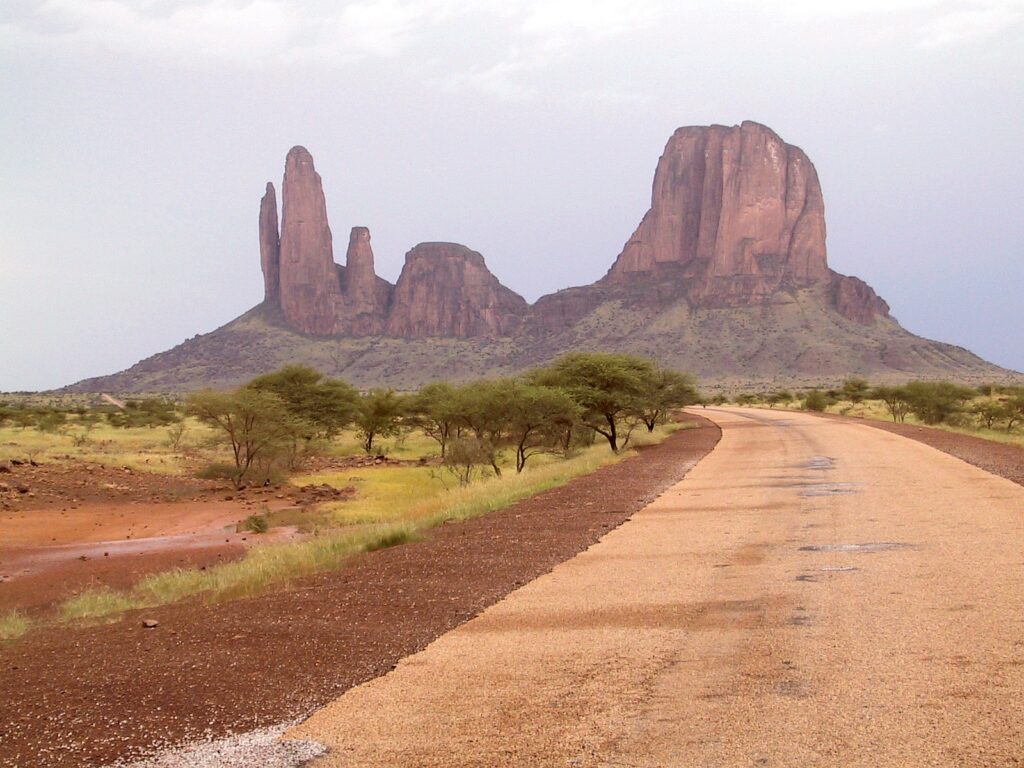
Special note for Israel and the Palestinian Territories.
Where should these countries be placed?
Countries at risk due to instability and conflict, + ethically problematic in terms of civil and political rights.
Main reasons:
- Open armed conflict (Gaza, 2023-2025): bombing, civilian casualties, siege and blockade preventing daily life and development.
- Human rights violations documented by international NGOs (Amnesty International, Human Rights Watch) both in the Palestinian territories and in Israel (against Palestinian citizens and residents of the Occupied Territories).
- High risk to traveller safety in areas of direct conflict (especially Gaza, but also areas of the West Bank).
Ethical dilemma: visiting Israel as a “traditional tourist” may mean ignoring or legitimising practices of occupation and inequality.
Countries that are ‘ethically problematic’ in terms of civil and political rights
These countries are not necessarily at war, but they raise serious ethical questions. Travelling here often means supporting tourist economies that do not respect fundamental rights.
- Saudi Arabia
Absolute monarchy. Women have limited rights, activists and dissidents are imprisoned, and the death penalty is frequently applied. - Thailand
Considered a mass tourist destination, but it has been ruled by decades of military coups. The lèse-majesté law results in lengthy prison sentences for those who criticise the monarchy. There is a reduced freedom of expression. - China
Severe restrictions on civil liberties, widespread digital surveillance, and repression of Uyghur and Tibetan minorities. Press and internet censorship. - Turkey
Formal democracy, but power has become centralised in recent years—arrests of journalists, restrictions on freedom of speech, imprisonment of political opponents. - Egypt
Authoritarian regime under al-Sisi: media under control, protests banned, NGOs persecuted. - Cuba
Single-party system. Although famous for its culture and tourism, political and press freedom is limited, with arrests of dissidents. - United Arab Emirates (Dubai, Abu Dhabi)
Modernity and luxury for tourists, but little freedom of speech, widespread surveillance, and migrant workers’ rights are severely violated. - Qatar
Same critical issues as the UAE: political and religious restrictions, difficult working conditions for migrants. Reforms remain partial. - Belarus
The Lukashenko regime is an ally of Russia. Violently repressed protests, arbitrary arrests. - Vietnam
Single-party government, internet and press censorship, arrests of activists. - Laos
A single-party country, characterised by very little political freedom and limited civil rights. - Israel and the Palestinian Territories are problematic places from an ethical point of view.
Israel: formally developed as a destination, but problematic if you choose unconscious tourism because it does not consider the impact on Palestinians.
- Saudi Arabia
📌 Ethical note for travellers
- Visiting countries in the first category (conflict and war zones) means exposing yourself to serious personal risk.
- Visiting countries in the second category (ethical issues) means strengthening economies that do not respect fundamental freedoms and rights.
For more responsible tourism, you can:
✔ choose countries with political stability and functioning democracies;
✔ favour destinations that protect civil and environmental rights;
✔ always obtain information from official sources (Foreign Ministries, NGOs such as Amnesty International or Human Rights Watch).
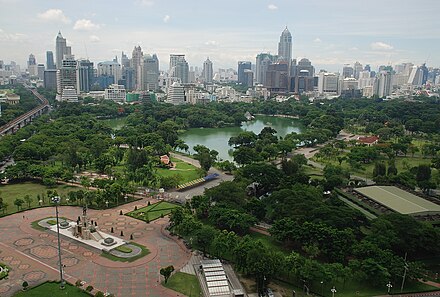
Countries with significant economic instability
Conscious travellers who want to practise responsible tourism may choose to avoid (or at least carefully consider) countries with significant economic instability, not only for practical reasons, but also for ethical ones.
Here are five key reasons:
- Contributing to distortions in the local economy
In countries with very high inflation or unstable currencies, tourists who pay in foreign currency (e.g. dollars or euros) can fuel parallel or “black” markets, reinforcing economic imbalances. This worsens the disparity between those who have access to hard currency and those who do not.
- Risk of indirect exploitation of local communities
In fragile economies, a significant portion of the tourism sector can end up in the hands of a few large operators or individuals close to power, leaving local communities even more marginalised. Tourism risks not bringing equitable benefits to the population.
- Increase in social inequalities
Tourists may have access to goods and services (such as hotels, transportation, and imported food) that are increasingly inaccessible to residents. This creates a divide between “privileged tourists” and citizens who struggle to meet their basic needs.
- Impact on local supply
In contexts of economic scarcity, tourism can divert resources (such as food, fuel, water, and energy) that are already limited for the local population, exacerbating the daily difficulties of the inhabitants.
- Ethical risk of “normalising” structural crises
Choosing destinations in an economic crisis without considering the consequences can indirectly legitimise governments or systems that do not address the causes of economic collapse. Conscious tourism, on the other hand, chooses places where spending can have positive and sustainable effects.
Argentina. Inflation remains very high (around 40-50% per annum in 2025, albeit down from its peak), the peso is depreciating, and austerity measures have been introduced by Javier Milei’s government (cuts to public spending, reduction in controls and subsidies) in an attempt to stabilise finances.
- https://www.focus-economics.com/country-indicator/Argentina/inflation/
- How Argentina’s Javier Milei lost the markets and turned to Donald Trump – FT
- Argentina props up peso as crisis roils President Javier Milei – FT
- Argentina’s poverty rate soars above 50% under Javier Milei – FT
Collapse in purchasing power: many people are falling into poverty (over 50% according to some recent estimates): protests and social unrest. For tourists, essential goods are often expensive, and currency fluctuations make it difficult to plan budgets accurately.
- Argentina’s poverty rate soars above 50% under Javier Milei – FT
- How Argentina’s Javier Milei lost the markets and turned to Donald Trump – FT
Venezuela. In the past, the country experienced hyperinflation and a severe crisis; recently, the government declared inflation to be “only” 48% per annum for 2024, which is still a very high figure. Some measures have been taken to stabilise the situation, but the general economic conditions remain fragile.
- Venezuela’s inflation rate was 48% year-over-year in 2024, according to Maduro’s statement to lawmakers.
Great difficulty in finding basic goods, medicines and food. Energy crisis, shortage of foreign currency for imports. Considerable inconvenience for travellers: shortages, unpredictable prices, and possible problems with the payment system.
Sri Lanka. After the economic collapse of 2022 (debt default, fuel shortages, energy production, and shortages of essential goods), the country is showing signs of recovery: inflation has fallen, the IMF is providing support with loan programmes, but the cost of living remains high.
- IMF says the economic situation in debt-stricken Sri Lanka is gradually improving
- Sri Lanka’s central bank holds rate to support economic recovery
The economy is vulnerable to external shocks, such as changes in fuel prices and debt policies. For travellers: power cuts, transport or service disruptions, and costs for imported goods can be very high; social instability is possible in recently affected areas.
Lebanon. The economic crisis has been ongoing for years (since 2019), with the pound devalued by over 90-98%, inflation reaching triple digits (exceeding 200% in specific periods), increased poverty, the collapse of the banking sector, and the state’s failure to guarantee essential services.
- Libano: governo prevede “forte ripresa economica” nel secondo semestre del 2025 – 03/2025
- Libano: crisi senza fine – 10/2024
Severe effects on food, medicine and fuel: many are forced to buy on credit or go into debt. Tourists may encounter issues with services (including healthcare and transportation), product shortages, fluctuating prices, and potential social unrest.
Pakistan. The economic crisis began in 2022, caused by high external debt, inflationary pressure due to energy and food costs, partly due to the global effects of instability and wars that increase prices, as well as climatic events (floods) that damage agriculture and infrastructure.
Although inflation has recently fallen, fluctuations remain, and the cost of living for imported goods can become prohibitive. The stability of services can be uncertain, especially outside major cities. Tourists may encounter difficulties in exchanging currency, making payments or finding specific products.
- Pakistan floods batter fields, factories and fiscal plans – 09/2025
- Pakistani economic crisis (2022–2024) 04/2025
Zimbabwe. Zimbabwe introduced a new currency (Zimbabwe Gold, ‘ZiG’) in April 2024, seeking to stabilise the economy after years of inflation and devaluation of the Zimbabwean dollar. However, the transition has been problematic: the currency has been heavily devalued, and prices for basic goods (food, housing) have risen sharply. In April and May 2025, annual inflation for the ZiG was between 85% and 92%.
Although there are signs of stabilisation in monthly prices, cumulative inflation remains very high, and daily life for the population is costly. allAfrica.com
Confidence in the currency is low; many transactions, particularly in informal markets, continue to be conducted in foreign currencies, such as the US dollar.
For travellers: expect exchange rates, food/accommodation costs, transport and consumer goods to fluctuate significantly; availability of some goods is not always guaranteed.
Nigeria. Inflation has returned to high levels: at the beginning of 2025, the annual rate was around 24-25%.
Some relevant events include changes to the price index calculation basis (CPI rebasement), the removal of subsidies (e.g., for fuel), and exchange rate fluctuations.
- IMF projects Nigeria’s inflation rate to average 26.5% in 2025, soar to 37.0% in 2026.
- World Bank projects 22.1% inflation for Nigeria in 2025
Although inflation is falling slightly, it remains very high for necessities such as food, energy and transport.
Disparities between urban and rural areas: Urban areas are more affected by inflation, particularly in terms of rents, transportation, and services. von.gov.ng
For tourists: the cost of living may seem low at first glance, but prices can fluctuate quickly; be aware of exchange rates and the possibility that some imported products may be very expensive or unavailable.
Turkey. Very high inflation rate (over 30-40% per annum in recent data, with higher peaks in the past).
- Turkey forecasts 28.5% inflation this year, single digits by 2027 – 09/2025
- Inflation eases in Turkey, although Trump tariffs pose economic risks – 04/2025
- Turkey inflation falls for eighth month in a row as food prices dip – 02/2024
- Turkey’s inflation sees its most significant monthly jump since August, nearing 65% year on year – 02/2025
- Turkey releases official June inflation at 35% y/y 06/2025
- Turkey Inflation Rate 09/2025
Sharp depreciation of the lira, instability in monetary policies, very high interest rates, affecting the purchasing power of the population.
- Turkey’s inflation sees its most significant monthly jump since August, nearing 65% year on year – 02/2025
- Inflation eases in Turkey, although Trump tariffs pose economic risks – 04/2025
Although there are signs of a decline in inflation compared to peak levels, prices remain high for many goods and services (food, accommodation, transport).
- Inflation eases in Turkey, although Trump tariffs pose economic risks – 04/2025
- Turkey’s inflation sees its most significant monthly jump since August, nearing 65% year on year – 02/2025
The exchange rate is unstable, and the lira continues to lose value against strong currencies. This is also reflected in the prices in local currency for services offered to tourists.
For tourists, it is advisable to research the “real” exchange rate beforehand, use foreign currency payments whenever possible, and be aware that prices can rise rapidly.
Egypt. Egypt has gone through a period of currency crisis: currency devaluation, measures requested by the IMF, interest rate hikes, and devaluation of the Egyptian pound.
- Egypt cuts interest rates 225 basis points, says more cuts likely – 4/2025
- Egypt secures $8bn IMF deal after removing currency controls
- Egypt Faces Financial Challenges After Credit Downgrade – 2023
Inflation has risen sharply (peaking at close to 40% or more in recent periods) but is slowly falling thanks to monetary reforms.
- Egypt cuts interest rates 225 basis points, says more cuts likely – 4/2025
- Egypt secures $8bn IMF deal after removing currency controls
There is a significant difference between the official rate and black market/parallel market rates. This can cause confusion and unexpected costs for those exchanging currency or paying in local currency.
Imported goods, fuel, food and services with imported components tend to experience frequent price increases.
Tourists may find that the cost of their stay is higher than initially expected; however, established tourist areas are more resilient but are not immune to economic difficulties.
Sudan (before the civil war / recent situation). Even before the active conflict (which began in 2023), Sudan was already in economic difficulty: high debt, out-of-control inflation, widespread currency devaluation, falling state revenues, and budget problems.
- Sudan Economic Outlook – 2025
After the conflict began, the situation deteriorated rapidly: GDP contracted, services were severely impacted, and there was a significant effect on both domestic and foreign trade. EUAA – European Union Agency for Asylum
Before the conflict, but already in decline, there was a widespread shortage of foreign currency for imports, which made it difficult to obtain many imported products (food, medicines).
The collapse of infrastructure (roads, electricity, health services) also made tourism extremely problematic, particularly outside the main centres.
For tourists: even without the war, travelling in Sudan involved economic risks: unstable prices, difficulties in paying in local currency, the need to carry hard currency, and logistical uncertainty
👉 In summary:
Tourism remains accessible, albeit with complications, in Argentina, Turkey, Egypt, and Sri Lanka.
Ethically and logistically problematic tourism: Venezuela, Zimbabwe, Lebanon, Nigeria
After the bad news, however, I would also like to suggest some alternative solutions or different approaches.
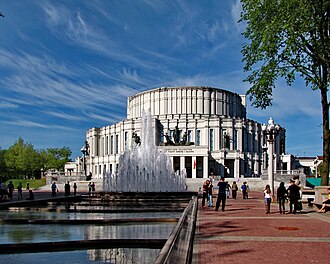
What solutions are possible, what alternatives can be adopted?
Countries at risk due to instability, conflicts or terrorism
Afghanistan
Armed conflicts, lack of security and civil liberties.
Support Afghan refugees and cultural projects in the diaspora (e.g. handicrafts, exhibitions, cuisine).
Recommended NGO: RAWA (Revolutionary Association of the Women of Afghanistan) — information and support through partner organisations (e.g. CISDA). Partner site: https://www.cisda.it
Ethical alternative/project: support diaspora groups (Afghan cultural foundations and associations in Europe / Italy) — look for local associations in the EU that promote handicrafts and education.Syria
In a civil war since 2011. Large parts of the country are destroyed, with millions displaced and fragmented control among the government, opposition and foreign forces.
Attend Syrian cultural events in Europe/elsewhere; support NGOs that focus on heritage reconstruction.
NGO: Médecins Sans Frontières / Doctors Without Borders — https://www.msf.org
Ethical alternative/project: NGOs working on heritage and reconstruction (e.g. UNESCO / Syrian Heritage initiatives) — UNESCO pages on Syrian heritage.
Yemen
Armed conflict and severe humanitarian crisis. Support NGOs active in water and food; avoid tourism that diverts vital resources.
NGO: Save the Children — https://www.savethechildren.org
Ethical alternative: humanitarian projects for water and food supported by international NGOs (targeted donations, professional volunteering).
Sudan and South Sudan
Civil war, institutional and economic collapse.
Sudan has been in civil war since 2023, devastating Khartoum and Darfur. South Sudan, which gained independence in 2011, continues to suffer from internal conflicts and famine.
Follow solidarity campaigns; highlight Sudanese literature and culture abroad.
NGO: Médecins Sans Frontières / Oxfam / UN agencies (UNICEF, UNHCR) — https://www.msf.org / https://www.oxfam.org / https://www.unhcr.org
Ethical alternative: support NGOs working on food security and refugee issues; promote Sudanese cultural events in the diaspora.
Libya
Internal conflicts, political fragmentation, and high risk.
Take part in projects on Libyan archaeology and history through museums and exhibitions.
Recommended NGO: International Committee of the Red Cross (ICRC) — https://www.icrc.org
Ethical alternative: museum collaborations and heritage protection projects with European universities and museums.
Mali
Insecurity due to armed groups and coups.
Support Malian music and art through festivals and cultural associations.
NGO: ACAPS / ICRC — https://www.acaps.org / https://www.nrc.no / https://www.icrc.org
Ethical alternative: Malian music festivals and cultural organisations in Europe (support for music and handicrafts).
Central African Republic (CAR)
Presence of armed groups and ongoing clashes. One of the world’s most severe and forgotten humanitarian crises.
NGO: International Rescue Committee (IRC) / ICRC — https://www.rescue.org / https://www.icrc.org
Ethical alternative: support peace and rural development programs through international NGOs.
Democratic Republic of Congo (East)
Areas such as North Kivu and Ituri are theatres of armed conflict and civilian violence. The exploitation of natural resources fuels instability.
NGO: Médecins Sans Frontières, Oxfam — https://www.msf.org / https://www.oxfam.org
Ethical alternative: fair trade initiatives for local products (coffee, handicrafts) managed by cooperatives.
Somalia
The state has never regained complete stability since the collapse in the 1990s. Al-Shabaab and other terrorist groups maintain a strong influence.
NGO: UNHCR / ICRC — https://www.unhcr.org / https://www.icrc.org
Ethical alternative: community development projects in the Horn of Africa (specialised NGOs).
Haiti
The state is almost collapsed: armed gangs control much of the capital, with frequent kidnappings and violence. No security, no political stability.
Reliable NGOs / organisations:
Partners In Health Haiti → https://pih.org
Fonkoze (microfinance for Haitian women) → https://fonkoze.org
Ethical alternative: visit Haitian diaspora communities (e.g. cultural events in Montreal, Miami, Paris), directly supporting Haitian artists and artisans.
Myanmar (Burma)
After the 2021 military coup, repression of ethnic minorities (e.g. Rohingya), civil war and arbitrary arrests are ongoing. Ethical and safe tourism is nearly impossible to achieve.
Avoid direct tourism that funds the junta; support ethnic groups and independent NGOs.
Reliable NGOs / organisations:
Burma Campaign UK → https://burmacampaign.org.uk
Free Burma Rangers (humanitarian aid to minorities) → https://freeburmarangers.org
Eritrea
Although less visible, it is considered an “African North Korea.” Indefinite mandatory military service, no press freedom, forced emigration.
Do not fuel tourism that finances the regime; support diaspora and independent programs.
Reliable NGOs / organisations:
Human Rights Concern Eritrea → https://hrce.org
Eritrean Diaspora Network (advocacy platforms).
Ethical alternative: attend Eritrean cultural and food events in diaspora communities (in Italy, Switzerland, Germany).
Russia (border areas / Ukraine)
The conflict with Ukraine, internal repression and sanctions have made the country isolated and dangerous.
Avoid direct tourism that legitimises the regime; support independent NGOs and free media.
Reliable NGOs / organisations:
Memorial International (human rights and historical memory) → https://memohrc.org
OVD-Info (legal assistance to dissidents) → https://ovdinfo.org
Ethical alternative: cultural trips to Georgia, Armenia, Baltic countries — where independent Russian communities and dissident artists are found.
Venezuela
Severe economic, political and social crisis: blackouts, food and medicine shortages, repressed protests.
Avoid government-run tourism packages; support civil society projects.
Reliable NGOs / organisations:
PROVEA (Programa Venezolano de Educación-Acción en Derechos Humanos) → https://provea.org
Alimenta la Solidaridad (community nutrition programs) → https://alimentalasolidaridad.com
Ethical alternative: choose cultural experiences within the Venezuelan diaspora (music, food, art), directly supporting emigrant associations and creatives.
Iran
The regime represses protests, restricts women’s rights (mandatory hijab) and arbitrarily arrests foreign citizens.
Avoid trips that fund the regime, but support women and activists.
Reliable NGOs / organisations:
Centre for Human Rights in Iran → https://iranhumanrights.org
United for Iran → https://united4iran.org
Ethical alternative: attend Iranian diaspora events (exhibitions, festivals, cinema); support independent artisans and musicians outside Iran.
✅ In summary:
Avoiding direct tourism in these countries today is the most ethical choice.
Supporting reliable NGOs and community projects is the best way to “travel responsibly from a distance.”
Seeking cultural alternatives in diaspora communities allows learning about the culture without legitimising repressive regimes.
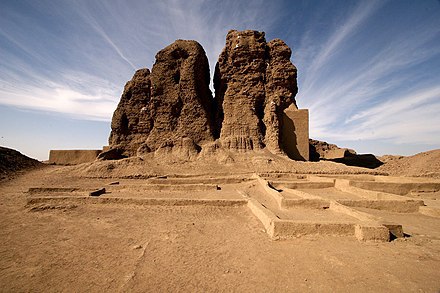
Ethically problematic countries for civil and political rights
Saudi Arabia
Absolute monarchy. Women have limited rights, activists and dissidents are imprisoned, and the death penalty is frequently applied.
Explore Arab culture in more open countries (e.g. Jordan, Morocco, Tunisia) or support educational trips organised by NGOs focusing on women’s conditions.
Thailand
Considered a mass tourism destination, but has been governed for decades by military coups. The lèse-majesté law imposes lengthy prison sentences on those criticising the monarchy. Freedom of expression is reduced.
Visit other freer Southeast Asian countries (e.g., Laos, Vietnam) in rural areas, where community tourism or support community tours run by Thai ethnic minorities outside commercial circuits are available.
Recommended NGO: Fortify Rights (human rights in SE Asia) — https://www.fortifyrights.org
Ethical alternative: community-based tours in the North (certified ethnic minority community tourism) — e.g. local operators associated with AITR in Italy.
Laos
A one-party state, characterised by very little political freedom and limited civil rights.
Vietnam
One-party government, internet and press censorship, arrests of activists.
For both countries:
NGO: Local human rights groups’ information via Amnesty/Human Rights Watch.
Ethical alternative: choose community tourism operators (homestays, eco-lodges) working with minority communities and providing fair wages — many local and international NGOs certify such projects (e.g. volunteering with local NGOs).
China
Severe restrictions on civil liberties, widespread digital surveillance, and repression of Uyghur and Tibetan minorities. Censorship of the press and the internet.
Consider democratic Asian destinations (such as Taiwan, Japan, and South Korea) or attend Chinese cultural festivals organised by diaspora communities.
Informative NGOs: Human Rights Watch / Amnesty International — https://www.hrw.org / https://www.amnesty.org
Ethical alternative: attend Chinese diaspora cultural events, or visit Taiwan, Japan, South Korea for similar cultural experiences with different civil standards.
Turkey
Formal democracy, but power has become increasingly centralised in recent years. Journalists arrested, freedom of speech restricted, political opponents jailed.
Choose community tourism in the Balkans or Caucasus; support independent operators in Turkey (local projects, cultural NGOs).
NGO: Amnesty International Turkey (info and reports) / Turkish Civil Society groups — https://www.amnesty.org
Ethical alternative: independent local operators (small tour operators working with communities, e.g. in Pontus / Cappadocia — search “community-based tourism Turkey”).
Egypt
Authoritarian regime under al-Sisi: media under control, protests banned, NGOs persecuted.
Visit museums and exhibitions in Europe/Africa dedicated to Ancient Egypt, or community experiences in the Maghreb.
NGO: Egyptian Initiative for Personal Rights (EIPR) — https://eipr.org (info on rights).
Ethical alternative: small local tour operators and independent guides reinvesting in the territory; support museums and conservation projects (e.g. American Research Centre in Egypt — https://www.arce.org).
Cuba
One-party system. Despite its cultural and tourism fame, political and press freedom are limited, with dissidents arrested.
Visit Cuban communities abroad and support Cuban music and dance, with a preference for Caribbean countries that exhibit greater political pluralism.
Informative NGOs: Cuban human rights orgs via Amnesty / Human Rights Watch — https://www.hrw.org
Ethical alternative: collaborations with Cuban music and dance schools outside the “resort” circuit and cultural exchange programs within the diaspora.
United Arab Emirates (Dubai, Abu Dhabi)
Modernity and luxury for tourists, but little freedom of speech, widespread surveillance, and migrant workers’ rights are severely violated.
Informative NGOs: Human Rights Watch — https://www.hrw.org
Ethical alternative: choose tour operators that certify ethical practices (such as eco-lodges and local tourism) and support workers’ rights projects; or opt for Oman for a Gulf experience with more open social policies.
Qatar
Similar issues as the UAE: political and religious restrictions, harsh conditions for migrant workers. Reforms remain partial.
Support sports and cultural initiatives in the Middle East in more inclusive countries; travel to destinations with sustainable development models.
Belarus
Lukashenko’s dictatorship is allied with Russia. Protests are violently repressed, and people are arbitrarily arrested.
NGO: NEXTA / Belarusian human rights groups (info) — search via Amnesty / HRW to support dissidents.
Ethical alternative: support Belarusian exile communities, cultural events in Europe.
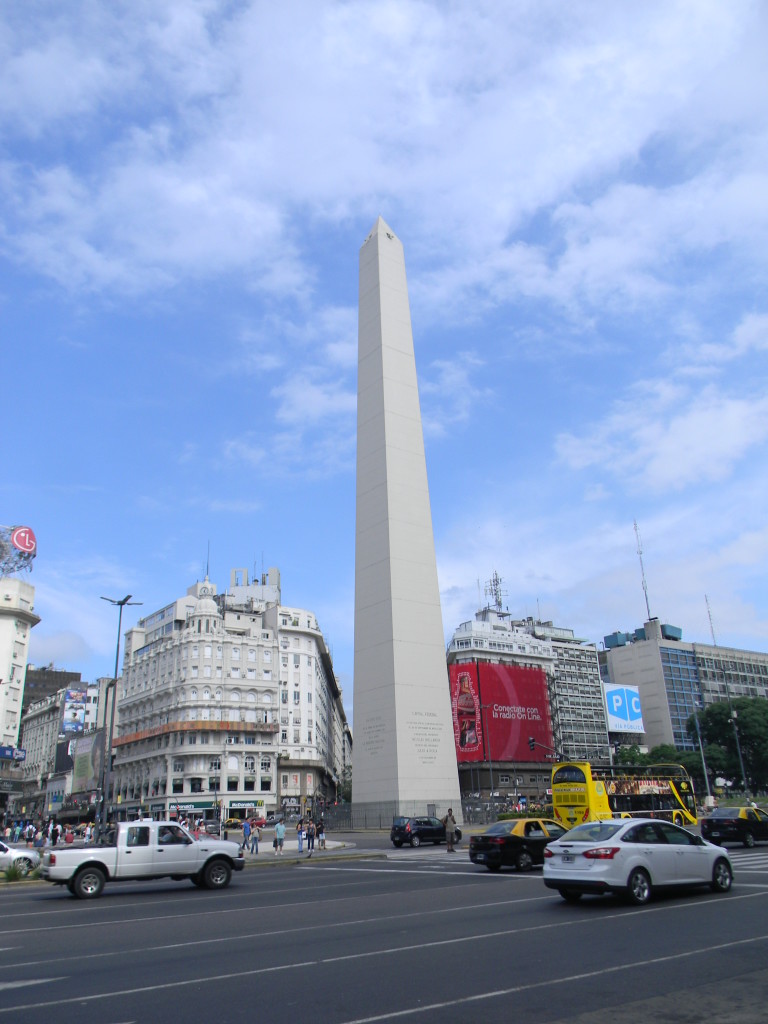
Countries with significant economic instability
Argentina
Inflation remains very high (around 40–50% annually in 2025, though down from its peak), peso devaluation, and austerity measures introduced by Javier Milei’s government (spending cuts, reduced controls and subsidies) to stabilise finances.
Collapse of purchasing power: many people live in poverty (over 50% according to recent estimates). Protests, social discontent.
NGOs / projects: Fundación La Alameda (social rights) / Fundación Amigos del Museo (cultural projects) — search local websites.
Ethical alternative: attend Argentine cultural events in Europe; purchase handicrafts through fair-trade cooperatives (e.g., tango associations that pay artists fairly).
Venezuela
Following past hyperinflation and severe crises, the government recently declared inflation at “only” 48% annually for 2024, which is still very high. Some stabilisation measures are in place, but overall economic conditions remain fragile. Shortages of basic goods, medicine, and food. Energy crisis, lack of foreign currency for imports.
NGO: PROVEA (Venezuelan human rights org) — https://provea.org
Ethical alternative: support Venezuelan diaspora NGOs; collaborate with food banks and certified humanitarian projects. Travel instead to more stable Caribbean destinations.
Sri Lanka
After the 2022 economic collapse (sovereign debt default, fuel shortages, energy production crisis, essential goods scarcity), the country shows signs of recovery: inflation falling, IMF loan programs, but the cost of living remains high.
NGO: Sarvodaya (local development NGO) — https://www.sarvodaya.org
Ethical alternative: community tourism (homestays) run by local cooperatives, supported by development NGOs.
Lebanon
Ongoing economic crisis since 2019: over 90–98% currency devaluation, triple-digit inflation (over 200% in some periods), rising poverty, banking sector collapse, state unable to guarantee essential services.
NGO: Beit el Baraka / Amel association for social development — search https://amelfoundation.org
Ethical alternative: support social restaurants, agricultural cooperatives and urban resilience initiatives.
Pakistan
Economic crisis since 2022, caused by high external debt, energy and food cost inflation, partly due to global instability and wars that raise prices, as well as climate events (floods), damaging agriculture and infrastructure.
NGO: Edhi Foundation (social assistance) — https://edhi.org
Ethical alternative: tour operators working with rural communities and conservation projects (e.g. cooperatives in the North).
Zimbabwe
Introduced a new currency (Zimbabwe Gold, “ZiG”) in April 2024, seeking stabilisation after years of inflation and devaluation of the Zimbabwean dollar. Transition problematic: the currency has been heavily devalued, and prices of basic goods (such as food and housing) have risen sharply. By April–May 2025, annual “ZiG” inflation ranged between 85% and 92%.
Sources: allAfrica.com / businessdaily.co.zw
Ethical alternative: prefer Southern African destinations with community projects (e.g. Namibia, Botswana) and support NGOs active in Zimbabwe.
Nigeria
Inflation is high again: in early 2025, the annual rate was around 24–25%. Although it appears to be declining slightly, it remains very high for essential goods such as food, energy, and transportation.
Sources: Pulse Nigeria / von.gov.ng / The Telegraph Nigeria
Ethical alternative: highlight Nigerian culture through global music and cinema festivals (Afrobeat, Nollywood).
For both Nigeria and Zimbabwe:
Useful international NGOs for contacts and partnerships include Oxfam (https://www.oxfam.org), Mercy Corps (https://www.mercycorps.org), the International Rescue Committee (https://www.rescue.org), and Save the Children (https://www.savethechildren.org).
Turkey, Egypt and Sudan — see previous sections.
Sara
Would you like to subscribe to my newsletter? In English, I am using the LinkedIn newsletter. I want to use it because I understand more about who has subscribed via the LinkedIn profile. Here is the link: https://www.linkedin.com/newsletters/7107445901593313280/